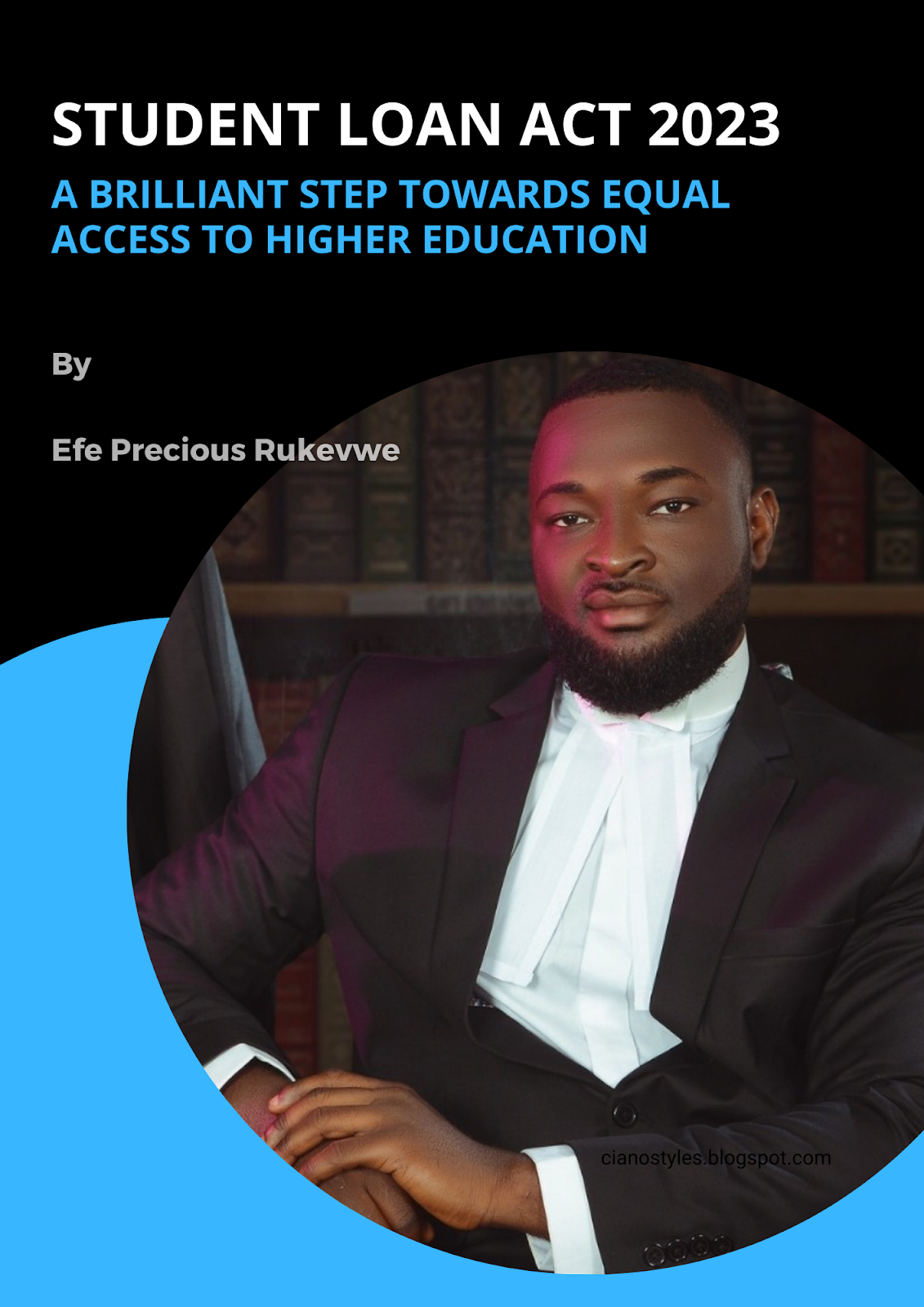By Efe Precious Rukevwe
Students Loan (Access to Higher Education); Interest-Free Loans for Higher Education is an innovative bill introduced by Hon. Femi Gbajabiamila, which was signed into Law by His Excellency, President Bola Ahmed Tinubu (GCFR) on the 12th of June, 2023 as a “fulfillment of one of his campaign promises to liberalize education funding” according to Dele Alake, a member of the Presidential Strategic Team. It aims to revolutionize access to higher education in public institutions in Nigeria by establishing the Nigerian Education Bank. This bank will provide interest-free loans to students, ensuring equal opportunities for all.
However, in an interview with PUNCH, Prof. Emmanuel Osodeke, the National President of ASUU, expressed strong concerns about the newly implemented Students Loan Act. He emphasized that introducing tuition fees through the law would be counterproductive, as over 133 million people in the country live below the poverty line. Osodeke highlighted the reliance of many Nigerian students on tuition-free education and hinted at the possibility of future legislation that could introduce such fees.
METHOD OF APPLICATION AND REPAYMENT: The method of application and repayment of the student loan are provided in section 18 to 22 of the Act as follows:
Eligibility Criteria: Secure admission to a public Nigerian educational institution. Ensure income is below N500,000 per annum and provide two eligible guarantors: civil servants (Not less than 12 years in service), Lawyers(10 years post-call experience), Judicial Officer or Justice of Peace. Although, students who have been found guilty of exam malpractice, felony and students whose parents has defaulted on previous loans will not be considered.
Submit Application: Apply through your institution's Students Affairs Office with required documents.
Loan Approval and Disbursement: The Nigerian Education Bank reviews applications within 30 days and disburses approved loans for tuition.
Repayment Commencement: Start repaying two years after completing the NYSC program. For employees, 10% of monthly salary is deducted by the employer. Self-employed individuals remit 10% of total monthly profit to the designated Students Loan Account.
CRITICISMS
The Nigerian Education Bank as provided in Section 5 and 6 holds tremendous potential for transforming the educational landscape in Nigeria. By providing interest-free loans, it reduces the financial burden on students and their families, enabling them to focus on their studies and pursue their career aspirations without the worry of exorbitant tuition fees.
However, it does not go without criticism, The Act’s provision that students should start repaying the loan two years after completing the National Youth Service Corps (NYSC) overlooks the potential challenges of finding employment immediately after NYSC. It does not account for individuals who may face difficulties securing jobs within that timeframe.
Likewise, the National President, Academic Staff Union of Polytechnics, Mr Anderson Ezeibe, said he has seen one area that will not be practicable. He said: “It says that students should refund the money two years after NYSC. But what is the provision for someone who is not working after NYSC? And will they all get jobs immediately after NYSC?”
RECOMMENDATIONS
Federal Government should introduce flexible repayment terms that consider graduates' employment status, providing a grace period or alternative repayment options for individuals who are unable to secure immediate employment after NYSC.
CONCLUSION
In Conclusion, The Act revolutionizes access to higher education for all Nigerians. By establishing a dedicated bank and interest-free loans, it breaks down financial barriers, unlocking the potential of countless individuals.





No comments:
Post a Comment